- Learning comes first at JCCC. The college delivers lifelong educational programs and services that are convenient and accessible; provides professional training opportunities; provides opportunities for personal growth and cultural enrichment; maintains a caring, supportive environment; stimulates economic development and is accountable to its stakeholders.
School Highlights
Johnson County Community College serves 24,632 students (26% of students are full-time).
The college's student:teacher ratio of 18:1 is higher than the state community college average of 16:1.
Minority enrollment is 36% of the student body (majority Hispanic), which is less than the state average of 40%.
Quick Stats (2025)
- Enrollment: 24,632 students
- In-state tuition: $3,090
- Out-state tuition: $6,180
- Student:teacher ratio: 18:1
- Minority enrollment: 36%
- Source: Integrated Postsecondary Education Data System (IPEDS)
Top Rankings
Johnson County Community College ranks among the top 20% of public schools in Kansas for:
Category
Attribute
Community Size
School Overview
The teacher population of 1,368 teachers has stayed relatively flat over five years.
Johnson County Community College
(KS) Community College Avg.
Carnegie Classification
Associate's Colleges: High Transfer-High Nontraditional
Associate's Colleges: Mixed Transfer/Career & Technical-High Nontraditional
Institution Level
At least 2 but less than 4 years
At least 2 but less than 4 years
Institution Control
Public
Public
Total Faculty
1,368 staff
170 staff
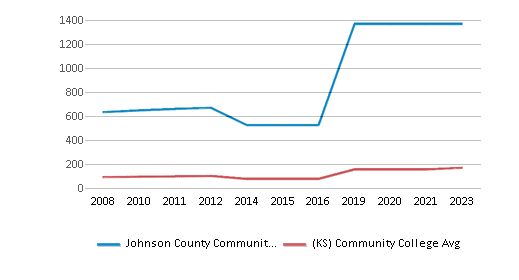
School Calendar
Student Body
The student population of Johnson County Community College has grown by 34% over five years.
The student:teacher ratio of 18:1 has increased from 10:1 over five years.
The Johnson County Community College diversity score of 0.57 is less than the state average of 0.60. The school's diversity has stayed relatively flat over five years.
Total Enrollment
24,632 students
1,908 students
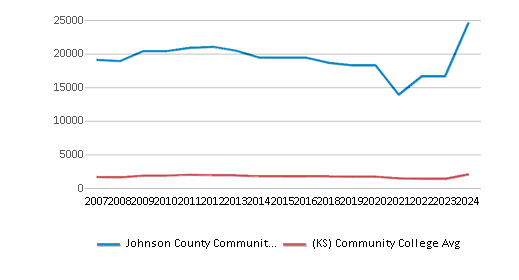
Student : Teacher Ratio
18:1
16:1
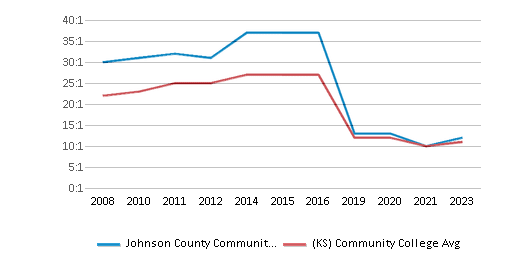
# Full-Time Students
6,520 students
606 students
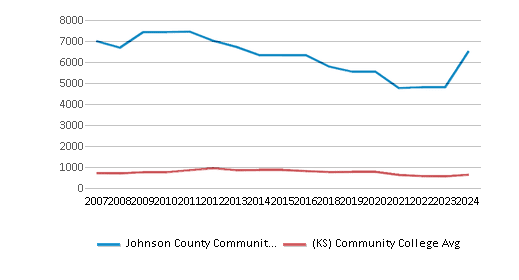
# Part-Time Students
18,112 students
1,451 students
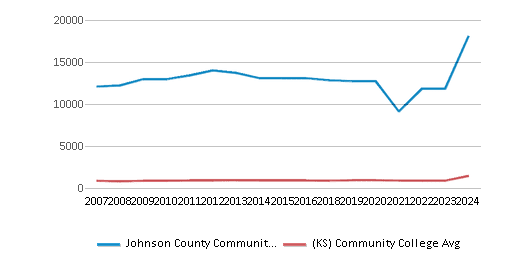
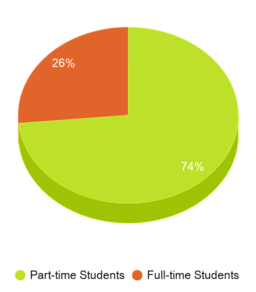
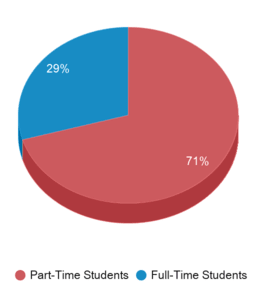
# Enrollment Undergraduate
246 students
231 students
# Full-Time Undergraduate Students
6,520 students
606 students
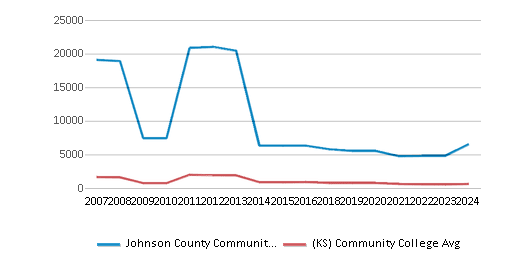
# Full-Time Graduate Students
n/a
11 students
# Part-Time Undergraduate Students
18,112 students
1,424 students
# Part-Time Graduate Students
n/a
5 students
Total Dormitory Capacity
n/a
342 students
% American Indian/Alaskan
1%
1%
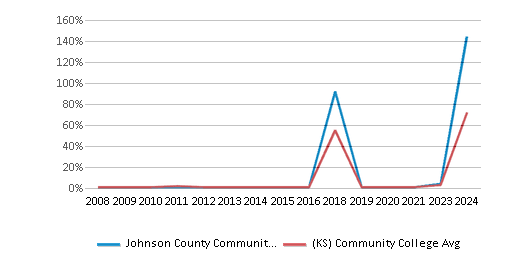
% Asian
4%
3%
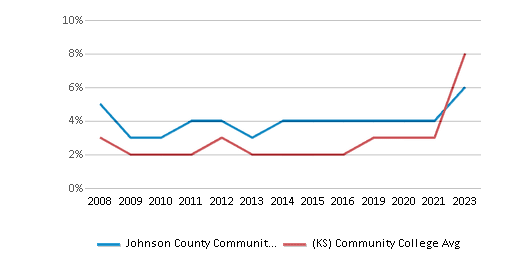
% Hispanic
12%
15%
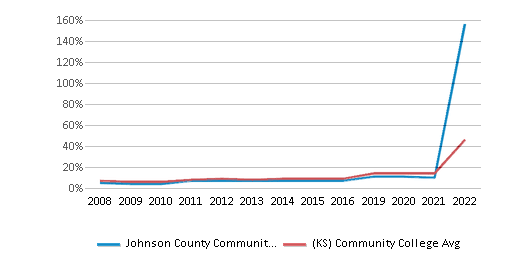
% Black
6%
8%
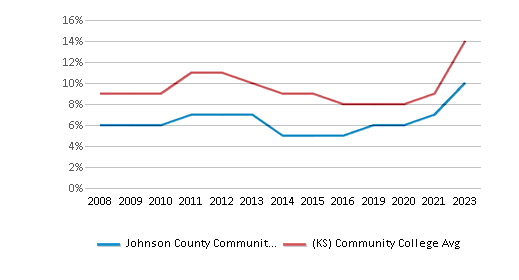
% White
64%
60%
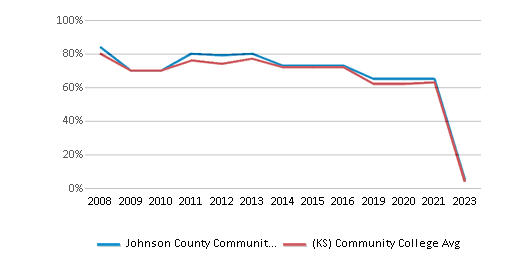
% Hawaiian
1%
1%
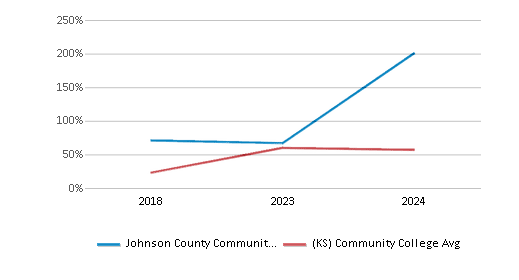
% Two or more races
5%
4%
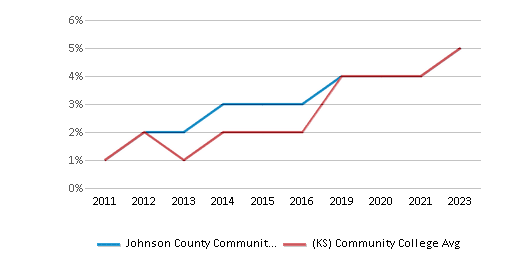
% Non Resident races
2%
2%
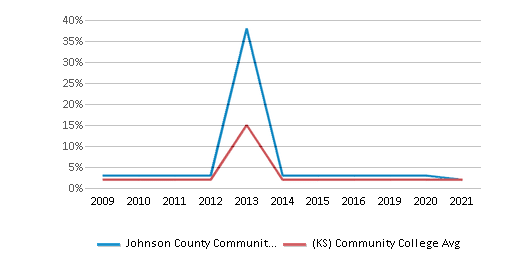
% Unknown races
5%
6%
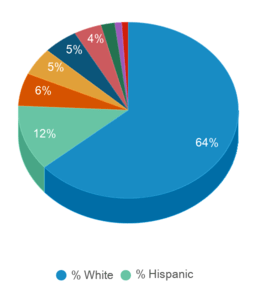
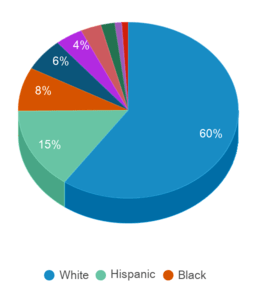
Diversity Score
0.57
0.60
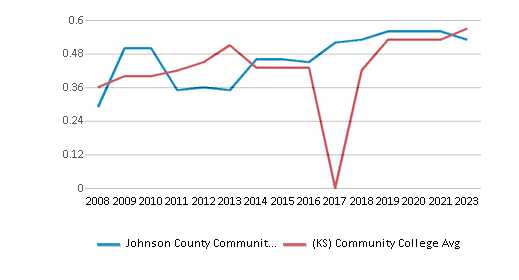
College Completion Rate (Students who graduate in less than 4 years)
0.2748%
0.4101%
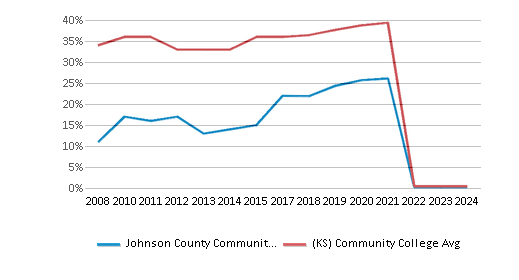
College Completion Rate (Students who graduate in 4 years or more than 4 years)
n/a
0.3056%
Average Graduate Earnings (10 Years)
$39,000
$34,000
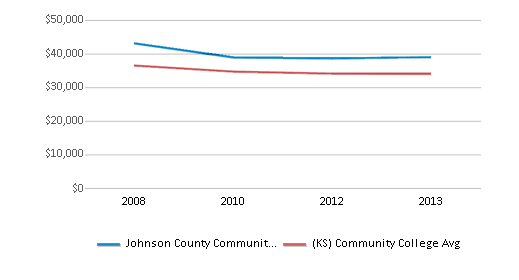
Tuition and Acceptance Rate
The public in-state tuition of $3,090 is less than the state average of $3,402. The in-state tuition has declined by 8% over four years.
The public out-state tuition of $6,180 is more than the state average of $4,296. The out-state tuition has declined by 7% over four years.
In-State Tuition Fees
$3,090
$3,402
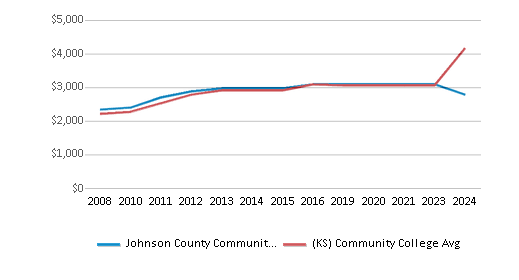
Out-State Tuition Fees
$6,180
$4,296
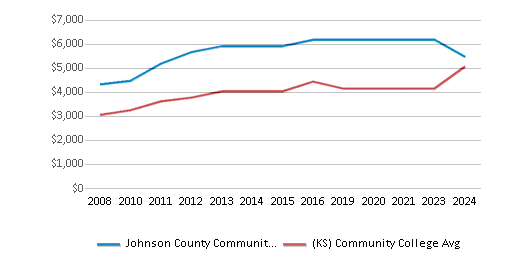
% Students Receiving Some Financial Aid
74%
90%
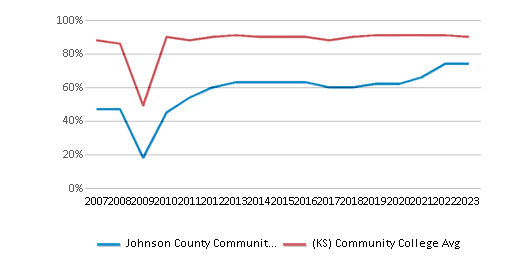
Median Debt for Graduates
$8,000
$8,892
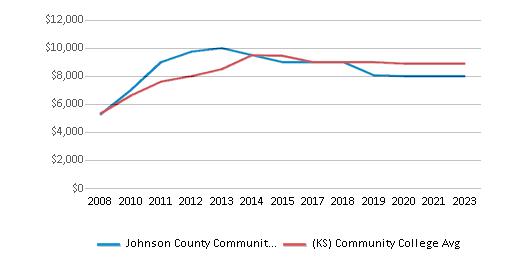
Median Debt for Dropouts
$4,182
$5,467
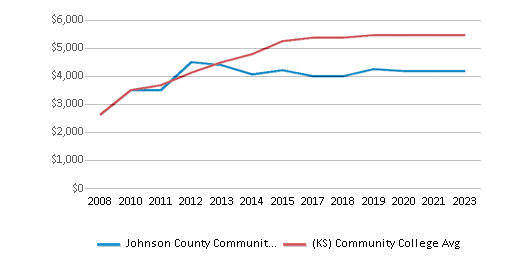
Acceptance Rate
n/a
100%
ACT Composite
n/a
21
Source: 2024 (or latest year available) Integrated Postsecondary Education Data System (IPEDS) , School Administrators
School Notes
- With more than 34,000 students enrolled in credit and continuing education classes each semester, Johnson County Community College is the state's third largest institution of higher education and the largest of its 19 community colleges. JCCC offers a full range of undergraduate credit courses that form the first two years of most college curricula. The college has more than 100 transfer agreements with area colleges and universities that ensure admittance to specific programs such as business, engineering and education. JCCC students are able to begin their first two years of a four-year degree program here and complete that degree on schedule. JCCC's continuing education program is the largest, most comprehensive in the Kansas City area. Through the Center for Business and Technology, participants can take courses in management and computer application or seminars and workshops that lead to professional certification and licensure. Personal enrichment classes, on topics ranging from gardening to money management, are also offered, while nationally and internationally performing and visual artists appear in the performance spaces and Gallery of Art in JCCC's Carlsen Center. The campus, centrally located in the county on 234 acres, opened in 1972. There are 18 major buildings on campus. Currently under construction are the Regnier Center for Technology and Business and the Nerman Museum of Contemporary Art.
Frequently Asked Questions
How much does Johnson County Community College cost?
Johnson County Community College's tuition is approximately $3,090 for In-State students and $6,180 for Out-State students.
What schools are Johnson County Community College often compared to?
Johnson County Community Collegeis often viewed alongside schools like Kansas City Kansas Community College by visitors of our site.
What is Johnson County Community College's ranking?
Johnson County Community College ranks among the top 20% of community college in Kansas for: Largest student body.
Recent Articles

Obtaining Your Bachelor's Degree at a Community College
Explore the evolving landscape of community colleges offering bachelor's degrees, addressing affordability, accessibility, and workforce needs.

A to Z of Community College Certificates and Courses
From business and healthcare to technology and skilled trades, the article showcases the breadth of options available to students seeking to enhance their knowledge, develop new skills, or pursue career advancement.

What is a Community College?
This comprehensive guide explains what a community college is, its history, and its role in higher education. It covers the types of programs offered, differences from four-year colleges, benefits of attending, and important considerations for prospective students, providing valuable insights for those exploring educational options.













